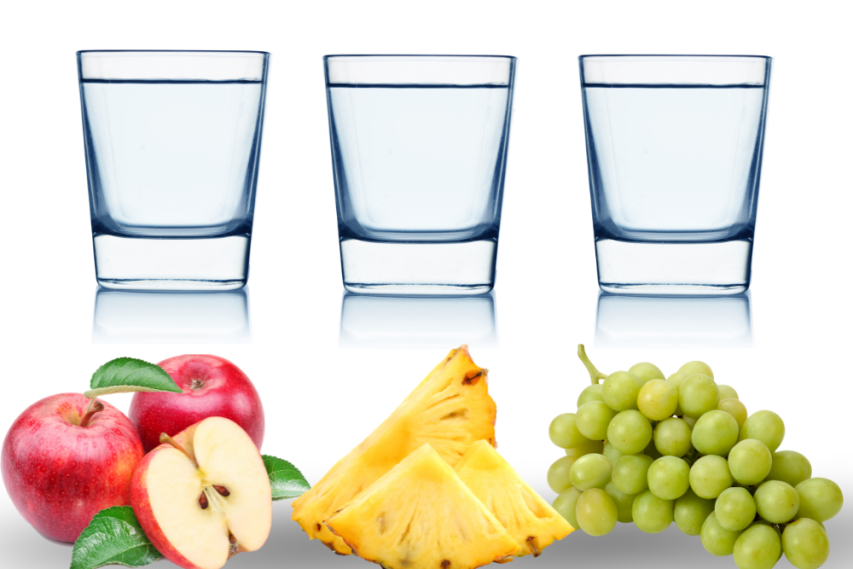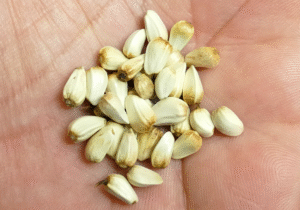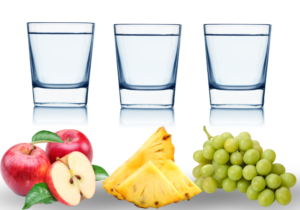Breaking Down Deionized Concentrates: Why They’re a Game-Changer for Food & Beverage
- Published On Jan 10, 2025

Beyond Traditional Juices & Purees
In the food and beverage industry, constant innovation is the name of the game. Just a few decades ago, fruit concentrates were revolutionary—extending shelf life, cutting transport costs, and offering consistent taste year-round. Now, deionized concentrates have taken that evolution a step further, opening up a realm of possibilities for B2B manufacturers looking to simplify formulations, maintain clarity, and enhance product versatility.
But what exactly is a deionized concentrate? And why should food processors, beverage formulators, and other industry players consider adopting it? Let’s dive in to see how this lesser-known ingredient is transforming the market—and why it might be the solution you’ve been searching for.
1. Understanding Deionized Concentrates
1.1 The Science Behind Deionization
“Deionization” involves removing most or all of the minerals, acids, flavors, and colors from a juice or puree. The process typically uses ion-exchange resins and filtration techniques to strip out elements that contribute to taste, color, or odor. The end result? A nearly colorless, neutral-tasting liquid that still carries the natural sugar content (and some other properties) of the original fruit or vegetable.
1.2 Key Characteristics
- Minimal Flavor & Color: By removing characteristic flavors and pigments, deionized concentrates can blend seamlessly into a wide range of recipes without altering their original color or taste profiles.
- Higher Brix (Sugar Concentration): These products often retain the natural sweetness of the original source, which can be particularly useful for sweetening or balancing formulas without using refined sugars.
- Extended Shelf Life: As with other concentrates, removing water and certain reactive compounds generally improves stability, reduces spoilage, and streamlines storage logistics.
Did You Know?
Deionized concentrates commonly come from fruits like apple, grape, pear, and even dates, providing a neutral sweet base for beverages, sauces, and more.
2. Why Deionized Concentrates Matter
2.1 Clean Label Trends
Modern consumers demand clean-label products with fewer additives. Deionized concentrates enable manufacturers to reduce or eliminate artificial sweeteners, flavors, or colors by using a naturally derived solution that’s often easier to label.
2.2 Formulation Flexibility
By removing flavor, color, and odor, deionized concentrates serve as a neutral canvas. This is a major advantage for:
- Premium Beverages: Achieve a consistent sweetness without impacting the core flavor.
- Confectionery & Bakery: Add sweetness to candies, pastries, or fillings without clashing with existing flavors.
- Dairy Alternatives: Maintain a light taste and color in plant-based milks or yogurts, enhancing overall consistency.
2.3 Cost-Effectiveness
Using a neutral sweetening ingredient can often be more cost-effective than multiple specialty additives. Deionized concentrates can help streamline supply chains, minimize the need for multiple flavor modulators, and reduce production complexity—particularly beneficial for large-volume manufacturers.
3. Key Applications in Food & Beverage
3.1 Beverage Industry
From fruit-based drinks to health-focused smoothies and functional waters, deionized concentrates contribute natural sweetness without off-notes or unwanted colors. They’re especially popular in low-pH beverages, where the neutral profile ensures you don’t overwhelm other flavors.
3.2 Confectionery & Bakery
In candy-making and baked goods, deionized concentrates can replace synthetic sweeteners or high-fructose syrups. Because they carry fewer flavor compounds, they won’t interfere with the product’s desired taste—chocolate, vanilla, caramel, and other key notes remain front and center.
3.3 Sauces & Dressings
Manufacturers producing glazes, barbecue sauces, or dressings can use deionized concentrates to add body and mild sweetness without impacting the sauce’s signature flavor or color. This simplifies recipes, especially for brands that aim for “clean” or “natural” labeling.
3.4 Dairy and Plant-Based Alternatives
In yogurts, smoothie bowls, and plant-based milks, a color-free, neutral-tasting sweetener prevents the “cereal milk” or “flavored milk” from looking cloudy or tasting off. This consistency is crucial for brands that want a light, neutral base to showcase unique flavors (like cocoa, vanilla, or fruit blends).
4. Ensuring Quality & Consistency
When incorporating deionized concentrates into large-scale production, quality and consistency become paramount. B2B buyers usually look for the following:
- Certified Production: Compliance with ISO, FSSC 22000, or similar food safety standards to guarantee a safe and uniform product.
- Reliable Sourcing: An established supply chain that can deliver consistent volumes, even under varying harvest conditions or seasonal shifts.
- Customized Brix Levels: The ability to adjust sugar concentration for precise formulation needs—especially critical in beverage manufacturing or specialized confectionery.
- Traceability: Growing consumer focus on origin and ethics underscores the need for transparent ingredient sourcing.
5. Subtle Sweetness, Big Impact
Deionized concentrates might not command the spotlight like their vibrant counterparts (think mango or berry purees). However, their value lies in subtlety, providing a clean, neutral foundation upon which innovators can build bold flavors. For product developers chasing new taste experiences—or simply seeking an unobtrusive sweetener that ticks the “natural” box—deionized concentrates can be a game-changer.
6. A Note on Working with Industry Partners
Partnering with a trusted supplier who understands deionized concentrates—how they’re produced, handled, and delivered—can make a significant difference. Specialized teams can often customize specifications (like Brix, packaging sizes, or blending with other complementary ingredients) to align precisely with production goals.
This close collaboration not only reduces risk in large-scale orders but also provides room for product innovation—a crucial advantage in an industry where flavor trends shift rapidly.
With Sun Impex, we focus on helping our clients navigate the nuances of deionization with confidence.
Is Deionization the Next Step for You?
Exploring deionized concentrates now might give you a competitive edge, whether you’re refining a fruit juice line, crafting new confectionery products, or developing better-for-you sauces and dressings. After all, a little subtlety goes a long way in creating truly standout products.
Check out our product list here of Deionized Fruit Concentrate.
Recent Post
-

The Unsung Hero: Innovative Uses of Safflower Seeds in Health & Wellness
-

Why Tamarind is a Must-Have Ingredient for Food Businesses
-

Breaking Down Deionized Concentrates - Why They’re a Game-Changer for Food and Beverage
-

Sun Impex’s Eco-Commitment - Reducing Food Waste Through IQF and Canned Solutions
